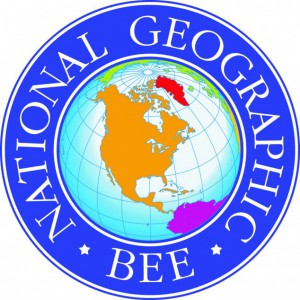In addition to the daily practice tests on the National Geographic website and the app that many of you have requested to be downloaded on your iPads, here are a few more practice questions for next week’s Geography Bee. Good luck!
NATIONAL GEOGRAPHIC BEE SAMPLE QUESTIONS
1. Which state is known as the Peach State because peaches are one of its major crops—Hawaii or Georgia?
2. Which state is known as the Great Lakes State because it is bordered by four of the five Great Lakes—North Dakota or Michigan?
3. Which state, famous for its wealth and financial resources, is known as the Empire State—Idaho or New York?
4. A trumpet appears on the quarter of which state, known for its jazz music heritage—Louisiana or Pennsylvania?
5. The first successful airplane flight, at Kill Devil Hills, is commemorated on the quarter of which state—North Carolina or Iowa?
6. To walk in Lisbon’s Alfama district and to stay at a beach resort in the Algarve, you would travel to what country?
7. To bike around Stanley Park in Vancouver and see the northern lights near Yellowknife, you would travel to what country?
8. To take a rain forest tour and to dance at Rio de Janeiro’s Carnival celebration, you would travel to what country?
9. To see an acrobatics show in Beijing and walk along the Great Wall, you would travel to what country?
10. The threatened Canada lynx, which has large feet adapted for walking on top of deep snow, lives near Lake of the Woods in which state—Georgia or Minnesota?
1. Georgia
2. Michigan
3. New York
4. Louisiana
5. North Carolina
6. Portugal
7. Canada
8. Brazil
9. China
10. Minnesota
 Learn about the Amazon Rainforest and how the Wampís Nation has been protecting the forest and the largest river in the world.
Learn about the Amazon Rainforest and how the Wampís Nation has been protecting the forest and the largest river in the world.  Trees help clean the air. Trees produce the pure oxygen we breathe, and remove air pollution by lowering air temperature, through respiration and by retaining particulates, but can it be bad to plant a tree?
Trees help clean the air. Trees produce the pure oxygen we breathe, and remove air pollution by lowering air temperature, through respiration and by retaining particulates, but can it be bad to plant a tree?
